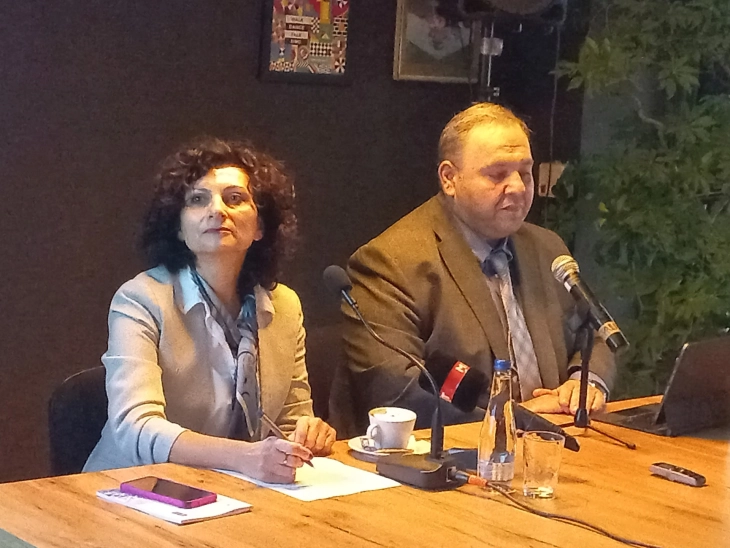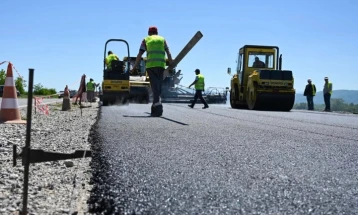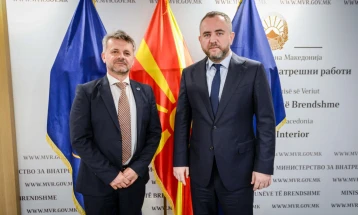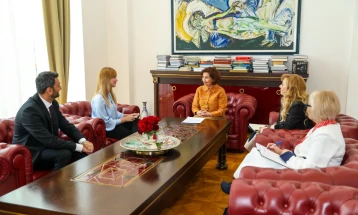Launch of guideline on media integrity
- The interweaving of media ownership with editorial management in newsrooms holds a central place in the complex mosaic of challenges to media integrity in the country, causing serious concerns about journalistic independence, is stated in the conclusions of the guideline on media integrity "Between Challenges and Solutions," promoted Friday in Skopje.

Skopje, 15 December 2023 (MIA) - The interweaving of media ownership with editorial management in newsrooms holds a central place in the complex mosaic of challenges to media integrity in the country, causing serious concerns about journalistic independence, is stated in the conclusions of the guideline on media integrity "Between Challenges and Solutions," promoted Friday in Skopje.
The goal of creating the guide, explained by the author Marina Tuneva, is to identify critical points for action regarding the construction in building media integrity. Based on 27 interviews with representatives from media and journalism organizations, media experts, and members of civic organizations, recommendations have been formulated to advance media integrity through initiatives fostering independence and alignment with European standards. These include ethical, educational, and structural reforms promoting responsible journalism, as well as enhancements to socio-economic conditions and the legal framework.

The guideline on media integrity is part of the “Miss the misinformation - Strengthening the capacities of local communities to respond to misinformation and gendered disinformation” project, which is implemented by the United Nations Development Program (UNDP).
In terms of the economic situation, the conclusions indicate that the media's dependence on political and state advertising often compromises editorial independence, emphasizing the critical need for financial stability that will not undermine media freedom.
It is confirmed that strengthening the regulatory framework (so-called "soft regulation") for online media is crucial, ensuring clear transparency and accountability. Additionally, it is important to develop the self-regulatory framework as a basis for improving ethical and professional standards across all media sectors.
It is emphasized that integrating gender equality into media policies and practices is not just a matter of ethical journalism, but essential for promoting inclusive and balanced public discourse.
It is emphasized that improving the socio-economic status of journalists and building their capacities are crucial in maintaining high journalistic standards and ethics.
Improving working conditions and ensuring continuous professional development are indicated to be of crucial importance for nurturing a media environment that values integrity, inclusivity, and ethical reporting.
“Self-regulatory bodies, in cooperation with media and civic organizations, are urged to promote the role of self-regulation and the existence of self-regulatory mechanisms through informational campaigns, training, education, and other events and activities to raise public awareness among different segments of the population. Moreover, there is an urgent need for enhancing media literacy,” as stated in the conclusions.
The State Commission for Prevention of Corruption is the project partner and its President, Biljana Ivanovska underscored that media integrity relates to the ability of the media to provide accurate and verified information to citizens without being dependent on specific/special private or governmental sources.
“Media ownership and financial data are not transparent. The composition of the governing bodies of public broadcasting institutions, the procedures and mechanisms for appointing their members, as well as key managerial and editorial personnel, enable dominant influence from the government or certain political groups over the editorial and operational policies of public services. The level of adherence to media ethics and other normative instruments is low, and this needs to be established as a journalistic practice,” Ivanovska said.
Photo: MIA







